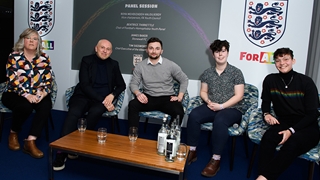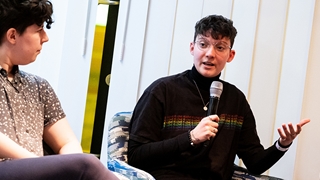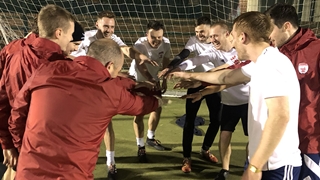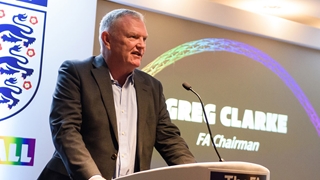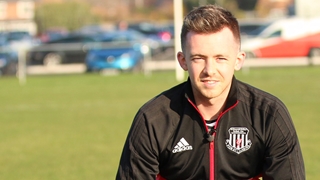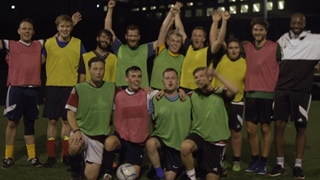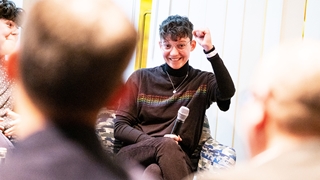
The FA National Youth Council is made up of 14 young leaders from across England and our aim is to ensure people our age, broadly speaking under 21, have meaningful opportunities in football and are represented.
Originally, we had an inclusion and diversity officer, but we soon decided this was a role everyone should assume. Promoting inclusion isn't something to only allocate to one person, it's a mindset everyone must adopt.
LGBT+ inclusion can be quite difficult to achieve because there is perhaps a tendency for members of this particular community to shy away from the parts of football they don’t feel safe in or not express themselves as freely as they would like.
I think the solution is to be proactive not reactive. We want to move away from waiting for issues to happen and then dealing them and instead engage with both LGBT+ football fans and ‘straight allies’ before any problems arise. This can be through education, networking or LGBT+ specific campaigns.
I think the solution is to be proactive not reactive. We want to move away from waiting for issues to happen and then dealing them and instead engage with both LGBT+ football fans and ‘straight allies’ before any problems arise. This can be through education, networking or LGBT+ specific campaigns.
For example, last December we supported the FA and Stonewall’s Rainbow Laces initiative by adding our own personal twist. We created the hashtag #ThatRainbowFeeling and got people to tweet photos of what made them happy about football.
This proved really popular. We got loads of photos from smiling players and teams across lots of digital platforms, some of which the FA don't really use.
I think the National Youth Council helps the FA engage with an audience they perhaps can't always reach, and our message is more relatable because it’s not just targeted at young people, but comes directly from young people as well.
Football is at the heart of everything I do, so it’s important that it feels inclusive. For me, that is achieved by creating LGBT+ role models. I suppose right now more of these exist in the women’s game and I certainly enjoy going to WSL or Lionesses' matches.
I also hope I'm a role model. I work at the Leeds United Girls Academy, coaching and mentoring the U12s team and it feels great to inspire the generation below me.
Leeds also have an LBGT+ supporters club called Marching Out Together. When I go to games at Elland Road, I sit in the family stand and find it a very safe and inclusive place.
However, not everyone is so lucky and with this in mind, I think the key message during LGBT+ History Month is we have to make discrimination something of the past. And part of the solution to do so is by encouraging those who do have had bad experiences in football to report their abusers.
The FA have guidelines in place to report wrongdoing at all levels of the game and the more people who have the courage to stand up to abuse, hopefully the less discrimination will happen because people will realise there are consequences and punishments to their actions.


